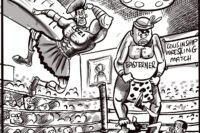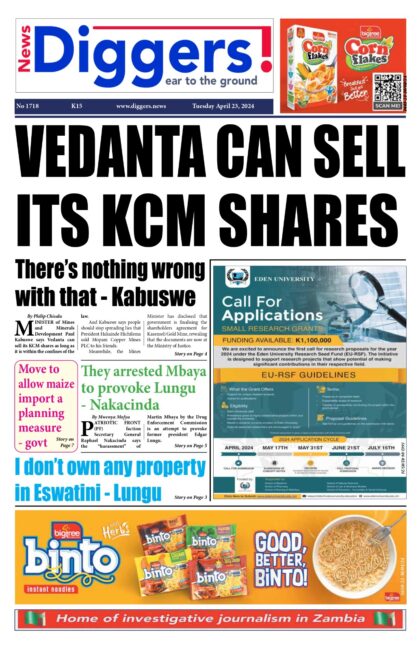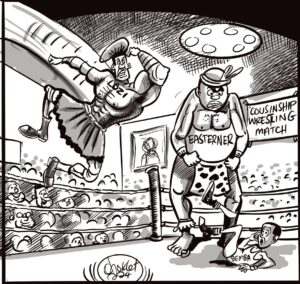FINANCIAL analyst Joshua Kamelu has called on the Central Bank and relevant authorities to stop property owners from charging rentals in dollars as this disadvantages local businesses.
The kwacha has in the last few months tremendously lost value against other convertibles, breaching the K19, K20 and K23 psychological barriers against the United States dollar, the euro and the British pound respectively.
Various explanations have been given as to the cause of this nose-dive by the kwacha, with depletion in foreign reserves and or the effects of the Coronavirus being severally cited as the major causes.
In an interview, Kamelu noted that the trend is disadvantaging the local businesses, especially in shopping malls and office parks, who can’t afford the rental charges following the depreciation of the local currency.
“In 2015, the Bank of Zambia and other regulators sternly warned businesses against pricing in dollars, but it’s very clear that this conduct has continued. To put this in context, let me draw your attention to the shopping malls. Now I am not talking about the giant chain stores that can withstand some turbulence in prices for a season, I am talking about small Zambian companies who rent space in these malls. I am talking about those booths and tables you find in the corridors,” Kamelu said.
“Let’s get a scenario of a boutique that pays $10, 000 dollars per month in rentals which in January, with the kwacha at K12 to a dollar worked out to K120, 000. All of a sudden, three months later, that business is paying K190, 000. That is a lot of money. Now as far as I know, clauses that fix the rental fees at a particular exchange rate very rarely exist in these lease agreements and as such, the poor business is compelled to cover the sharp spike in rents.”
He said while a stable exchange rate is desirable, there still is no tangible justification for continued use of the dollar in rental charges.
“Yes, the problem should be addressed from the roots, the exchange rate should be kept stable through prudent macroeconomic interventions and fiscal discipline but surely, if there is no plausible explanation for charging in a foreign currency, then the relevant authorities must step in to not just warn perpetrators of this conduct but enforce the law and ensure that the conduct is curtailed. A lot of challenges plague the business community; we will need to eliminate some of these challenges. However, this is the subject of another conversation,” said Kamelu.
“For now, our concern is drawn to the many businesses that pay in dollars, with particular interest in the Real Estate Market for lettable retail and office space. Don’t get me started on how difficult it is for a young entrepreneur to find reasonably priced retail space. But then, think about one that has pay to their rental fees in dollars. A number of office parks and shopping malls are notorious about pricing their space in dollars. I have yet to come across a plausible explanation for this conduct.”












